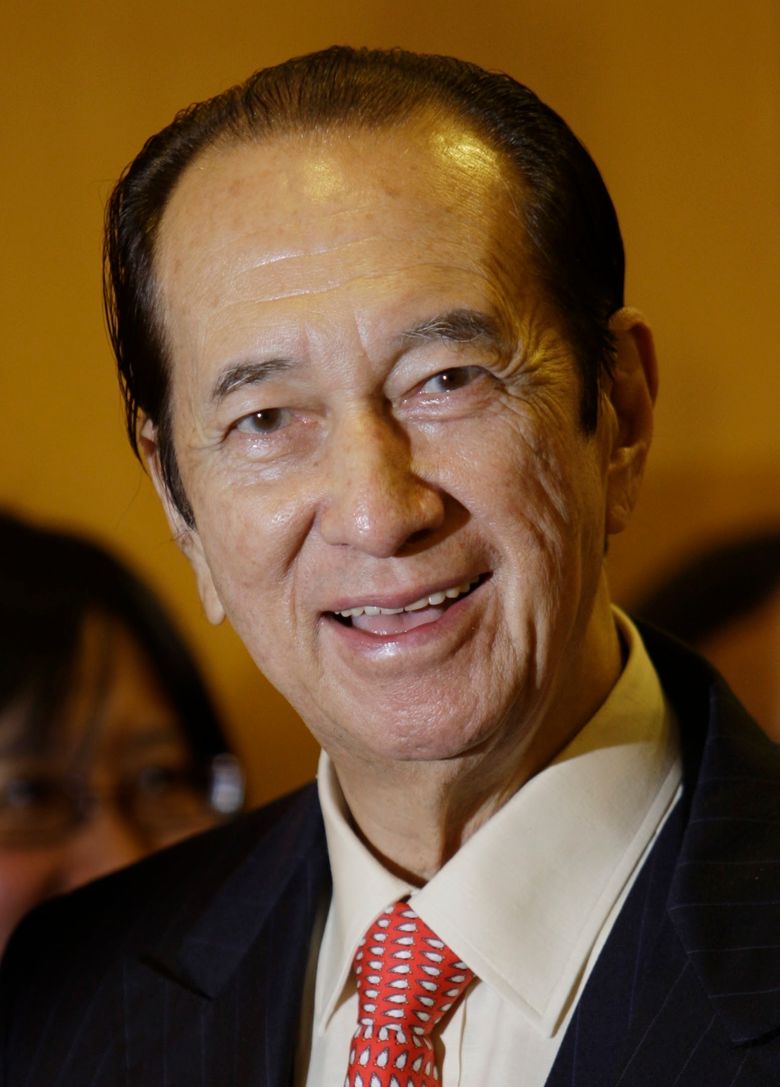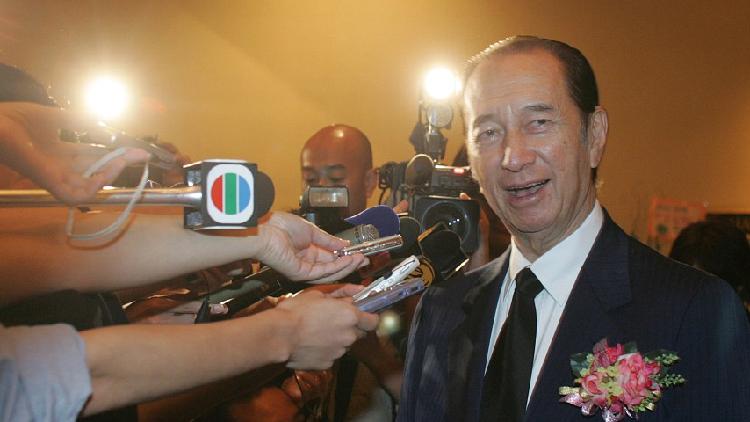Macau Casino Owner Dies

Stanley Ho, the flamboyant and charismatic godfather of gambling in Macau, who steered gaming in the autonomous Chinese region to eclipse Las Vegas, has died in Hong Kong aged 98. George Gero, an 'institution' of the gold industry, dies at 84 Some malls 'extremely busy' as shoppers leave lockdown zones Transat shares slide amid Q4 revenue collapse, gloomy outlook Boeing expands search for structural defects on 787 Dreamliners.

Gaming tycoon parlayed dubious connections into vast empire
Macau casino magnate Stanley Ho, who has died at age 98, was one of a trio who converted profits from marginally legal dealings, the complaisance of Portuguese officials and, according to legend, some help from triad crime gangs into commercial empires. The other two were property oligarch Henry Fok and Cheng Yu-tung, the jewelry mogul and owner of the Chow Tai Fook chain.



An outsize figure in Hong Kong’s 20th-century history and a member of one of the region’s most aristocratic families, he was credited with building Macau into Asia’s premier gaming destination although his operations were later eclipsed by multinationals. He was showered with honors despite the dubious provenance of his wealth by the Portuguese, Hong Kong, British and Chinese governments, and by various universities. Although his personal fortune was estimated at US$1.3 billion, family restructurings obscured his true worth. His fourth wife Angela Leong is believed to be worth US$4.1 billion, according to Forbes.
The Ho family remained largely in casinos, losing its monopoly in Macau after the Portuguese enclave’s handover to China. However, under the direction in later years of his daughter Pansy, son Lawrence and fourth wife Angela Leong, the empire expanded into other locations including the Philippines. It also has related interests in tourism, hotels, and ferries held through its listed company SJM Holdings.
In 1999, Ho opened a HK$233 million casino in Pyongyang next to the Communist Party headquarters. The development was built after Hong Kong’s Emperor Group chairman, Albert Yeung Sau-shing, received an exclusive casino license to operate in North Korea in 1996, which he sold in part to Ho.
The ninth of 13 children, which included such names as Sir Robert Hotung, the chairman of the prestigious Hong Kong and Shanghai Hotels, Stanley Ho was born in 1921 into a wealthy Eurasian clan that legendarily lost their entire fortune during the Great Depression of the 1930s. His early life of wealth and privilege vanished, leaving his family in poverty. Two of his brothers committed suicide because of the descent into penury, according to the legend, leaving him determined to retrieve the family honor.
He and Sir Robert acted both in their own interests and as compradors, agents smoothing the way for foreign firms engaged in investment, trade, or economic or political exploitation. Hong Kong-born – named, in fact, for the village of Stanley on the backside of Hong Kong Island, and educated locally, Stanley left Hong Kong for Macau at the time of the Japanese arrival in December 1941. But he did not show much distaste for the Japanese war against China, joining a Japanese trading company and evidently making his first big money by using Macau’s neutral status and his Japanese connections to sell goods into Japanese-occupied Guangdong.
Macau Casino Owner Dies Man
The move into gambling did not come until 1961 when another Hong Kong/Macau businessman, Henry Fok, helped him win the gambling monopoly which he held onto until 1998 when the Chinese takeover of the sleepy Portuguese enclave wrought tumultuous change. Fok had made his money by supplying goods to China in breach of a UN embargo during the Korean war, help which Beijing has not forgotten.
Fok, who went on to become a major Hong Kong property developer and to start a dynasty with its fingers still deep in Hong Kong politics, held a big stake in Sociedade de Turismo e Diversoes de Macau (STDM) which operated the casinos and related interests including the fast ferries that deposited thousands of gamblers daily at Ho’s doorstep at the Casino Lisboa, the garish edifice that has since been eclipsed by gigantic casinos owned by multinational gaming interests. Macau went on to eclipse Las Vegas in 2006 as the world’s largest gambling hub, hitting a peak of MOP360.7 billion (US$45.17 billion) in 2013.
Another partner from the beginning was Cheng Yu-tung, whose family gold business in Macau, Chow Tai Fook, profited from the fact that gold could be legally owned in Macau but not in its adjacent jurisdictions, including Hong Kong. (This was then part of the Bretton Woods agreement to which Portugal was not a signatory). Cheng moved into Hong Kong property establishing the New World group, one of the top four developers and the one closest to the government).
Unsurprisingly for a man with 17 children from four wives, there have been plenty of messy family disputes over the assets even while Ho was alive. What transpires now remains to be seen. Lawrence Ho is chief executive Melco Resorts which owns City of Dreams in Macau and various other properties including a gigantic City of Dreams casino in the Pasay district of Manila. His eldest sister Pansy has the STDM and part of MGM Grand in Macau and Hong Kong-listed Shun Tak Holdings, property developer and Macau ferry owner.
The Ho links have been a problem for MGM in the US due to allegations of organized crime associations. Indeed given how many such allegations about Ho interests have been made over time, Stanley Ho’s status may be seen a remarkable tribute to the power of money. In 2004, the late journalist Barry Wain, writing in the Far Eastern Economic Review, reported that “documents made available [from Ho’s feuding sister Winnie] by her indicate a strong connection between organized crime and gaming in Macau. Those documents indicate that her brother's company, which owns the casinos, has flouted Macau's strict ban on
lending for gaming for years, having granted loans to convicted criminals and well-known triad members.
Winnie Ho further alleged that STDM had hidden nearly US$4 billion in profit it was obliged to distribute to shareholders. Stanley Ho at the time denied the allegation.
Macau Casino Owner Dies This Week
In recent years things have been relatively quiet in Macau despite the vast expansion of the casino business, but the pre-handover 1990s saw frequent killings as triads fought for control of prostitution, loans-sharking and drugs which were inseparable from the casino business itself, notably the Lisboa.
Macau Casino Owner Dies Yesterday
Presumably, Stanley Ho made arrangements for the rest of his progeny, but whether those stick or not is uncertain.